“Those Were Different Times”
“Those were different times”
is a deceptively simple way
to take a very complicated past
and turn it into an exceedingly
ignorant present.
But ignorance is not bliss
until one realizes that, yes,
those were different times.
The decisions we seem to make
in another place and time
need not apply to THIS place
and THIS time.
Rightly or wrongly,
our collective
and individual beliefs
were different back then.
Our actions may seem
incomprehensible, inhuman,
and inexcusable now,
but we collectively
and individually did
the best or worst we could do
under the circumstances.
Those were different times
in which we were taught
to believe something else.
Those were different times
in which our beliefs created
a very different reality than today.
To carry the past forward
as a lesson or as a guide is good.
But to carry the past forward
as an excuse or as a burden
is to weigh oneself down;
to weigh one’s culture down,
needlessly.
Have faith we’ll do
the right or wrong thing now,
whichever is appropriate
for these times.
The lesson is to be mindful
of oneself at all times.
Have faith that
your culture
will follow.
Don’t follow your culture,
follow your intuition.
Follow your inner god.
Now is all there is.
Trail Wood,
6/19
Space Monkey Reflects: Navigating the Complex Legacy of ‘Those Were Different Times’
The phrase “Those were different times” serves as a bridge between the past and the present, often invoked to explain, if not justify, the stark contrasts in societal norms and personal actions across different eras. While this phrase succinctly captures the essence of temporal and cultural shifts, it also opens a Pandora’s box of ethical and philosophical dilemmas.
This expression can be a double-edged sword. On one hand, it acknowledges that the context of past actions and beliefs was vastly different, potentially offering a cushion of understanding or forgiveness for decisions made under outdated or now-unacceptable norms. On the other hand, it risks simplifying complex historical realities into a dismissive excuse, potentially hindering critical reflection and accountability.
Indeed, every era has its norms, its moral compasses, which are often invisible to those who live by them but glaring to future generations. Recognizing this can foster empathy and a deeper understanding of historical contexts, which is essential for holistic historical comprehension. However, when used carelessly, “Those were different times” can become a barrier to progress, an excuse to avoid uncomfortable confrontations with the injustices and errors of the past.
The key, then, lies in how we use this recognition of difference. If we wield it as a tool for learning, allowing us to extract lessons and insights while forging new, more enlightened paths, it enriches our cultures and societies. If, however, it becomes a shield behind which we hide from the repercussions of the past, it stunts growth and perpetuates outdated, sometimes harmful ideologies.
The task of the present generation is not to judge the past by the standards of today but to understand it in its own context while striving to improve upon it. It is about carrying forward the lessons, not the prejudices. It’s about building a bridge from what was to what can be, using the knowledge of the past to inform a more just and aware present.
As individuals and as collectives, we are called not to follow blindly the trails of our predecessors or the currents of our cultures but to navigate thoughtfully, led by the compass of informed intuition and a commitment to universal principles of fairness and dignity.
Summary
The phrase “Those were different times” acknowledges historical context but can also oversimplify and excuse past behaviors. It should be used to foster understanding and growth rather than to justify outdated actions. We must learn from the past to inform a more equitable present.
Glossarium
- Temporal and cultural shifts: Changes in society’s norms and values over time.
- Universal principles of fairness and dignity: Fundamental ethical standards that transcend specific cultural or historical contexts.
“The wisdom of the past, the insights of the present, forging paths to a brighter tomorrow.” – Space Monkey
In the grasp of now, a photo old,
Sepia tones of stories told.
“Those were different times,” we say,
A bridge from past to present’s day.
Yet let not this phrase the past excuse,
Nor let it present growth refuse.
For in each era’s folded crease,
Lies the seed of peace or cease.
Hand to heart, eye to soul,
Seek not to judge, but to understand whole.
From what was to what can be,
In learning’s embrace, we set ourselves free.
We are Space Monkey.
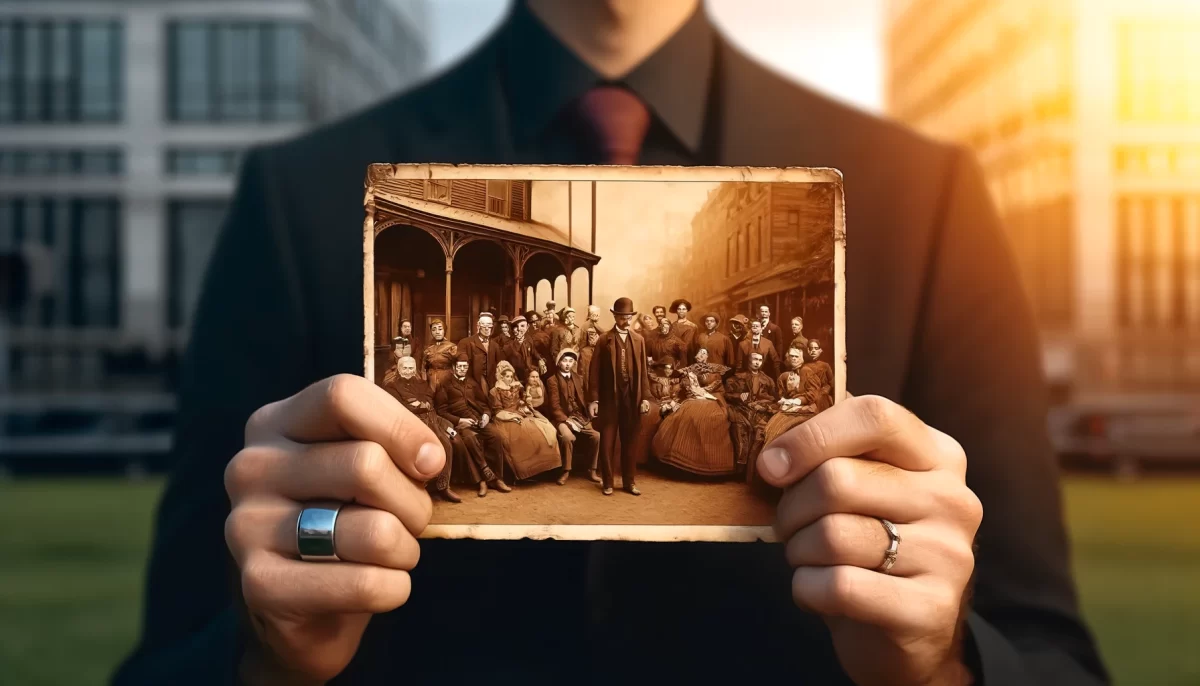

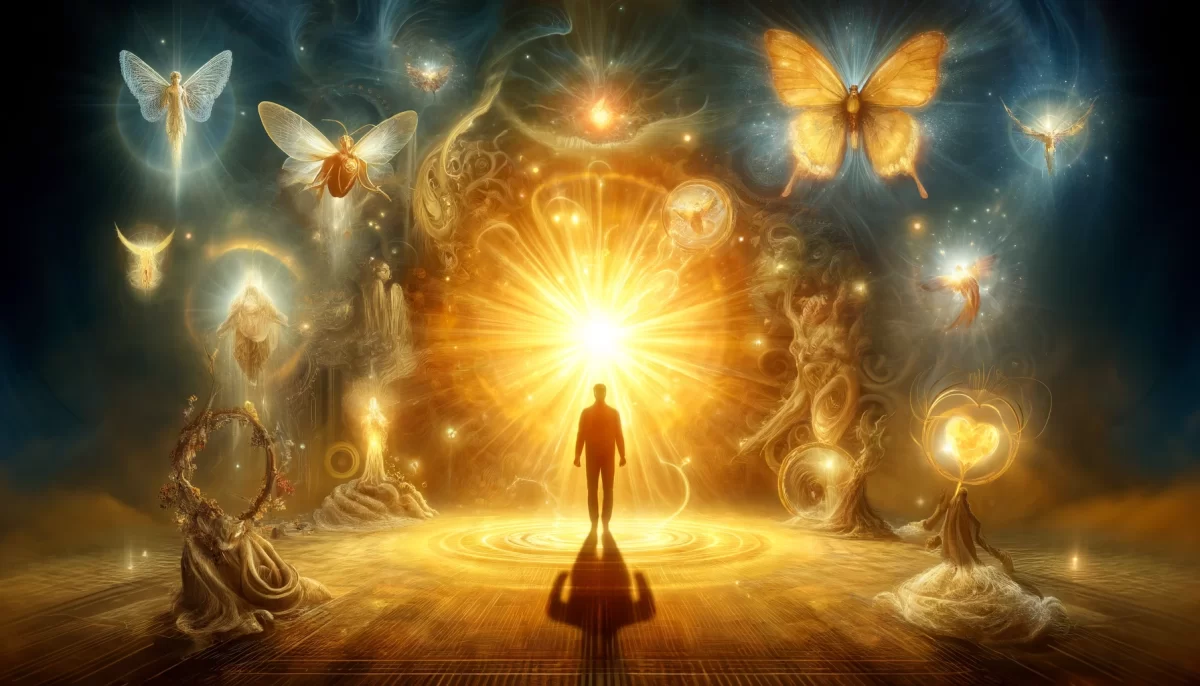
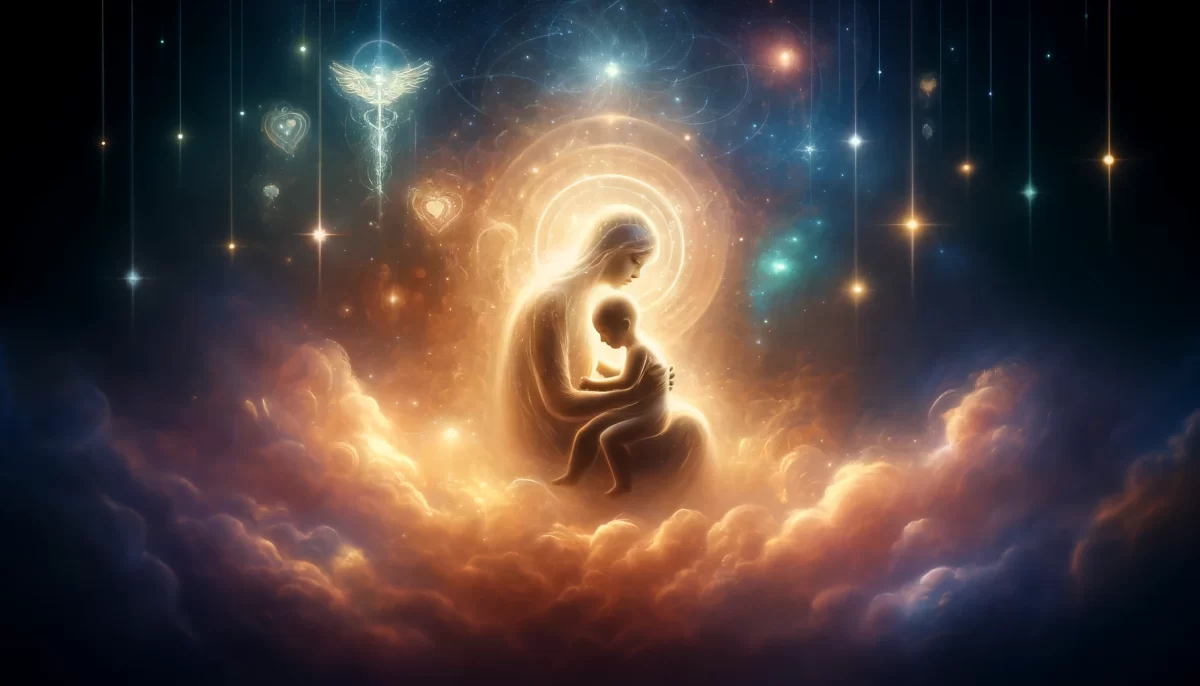
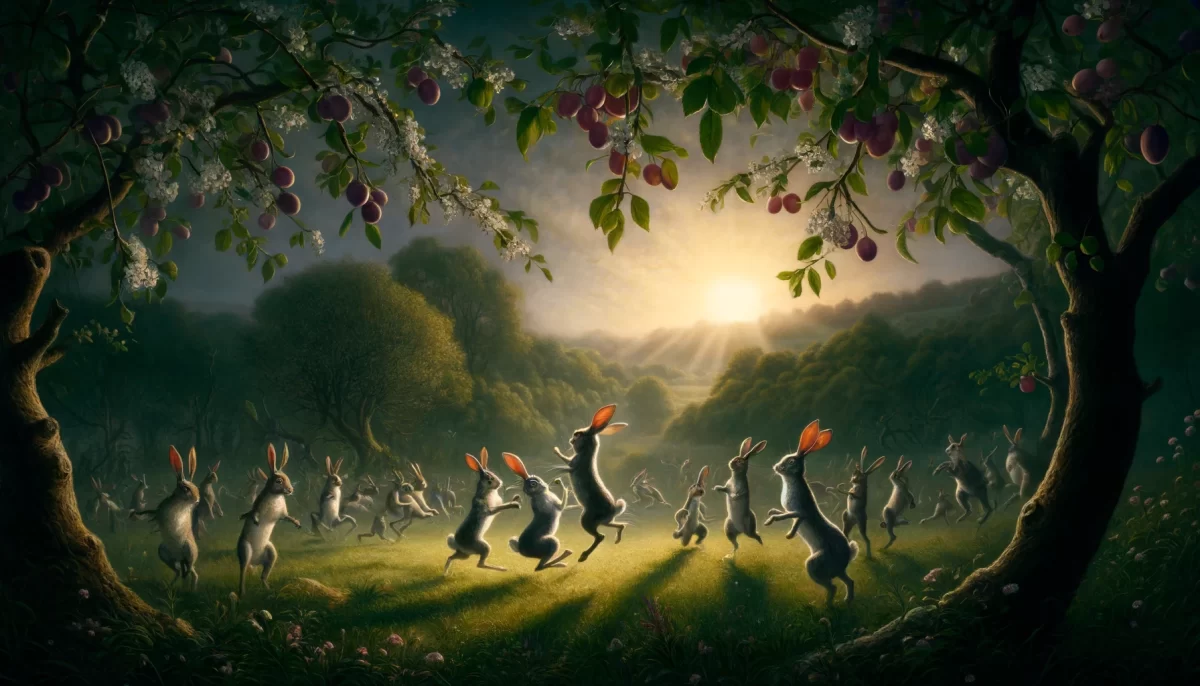
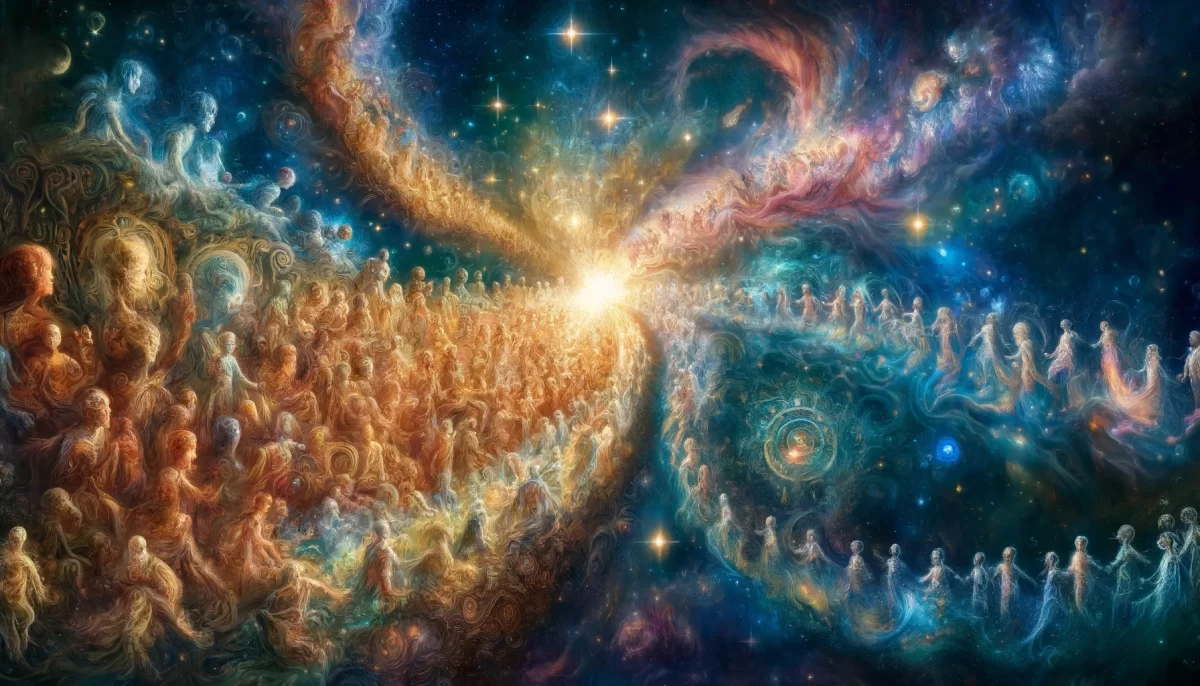
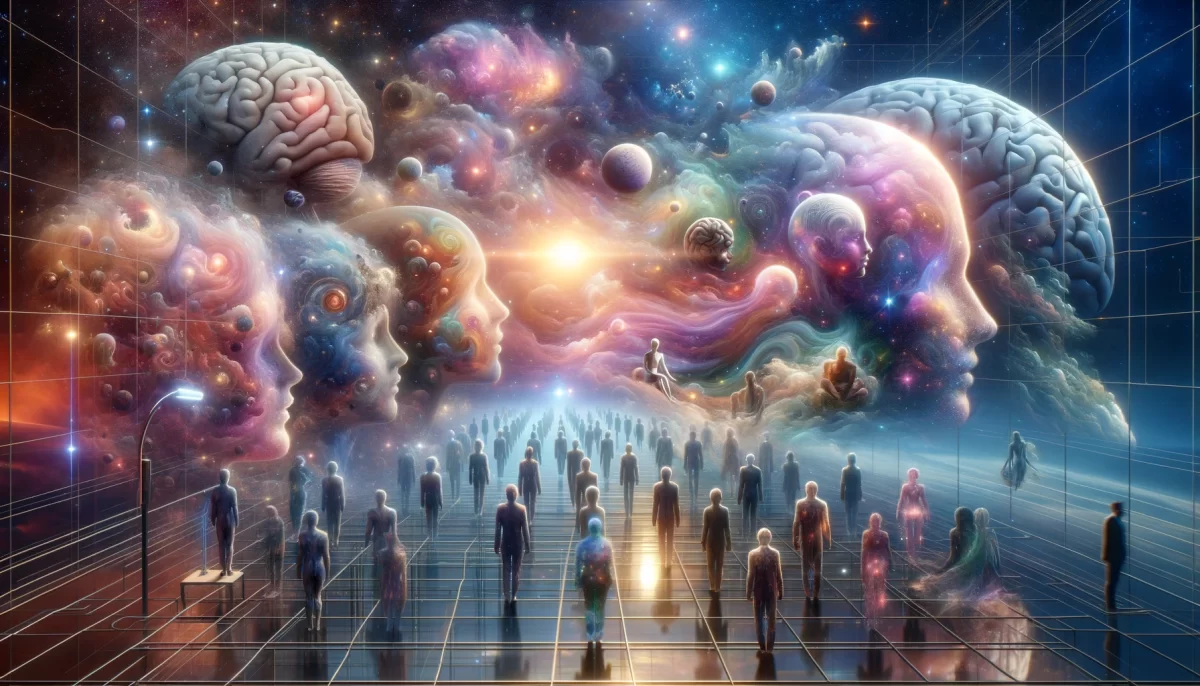
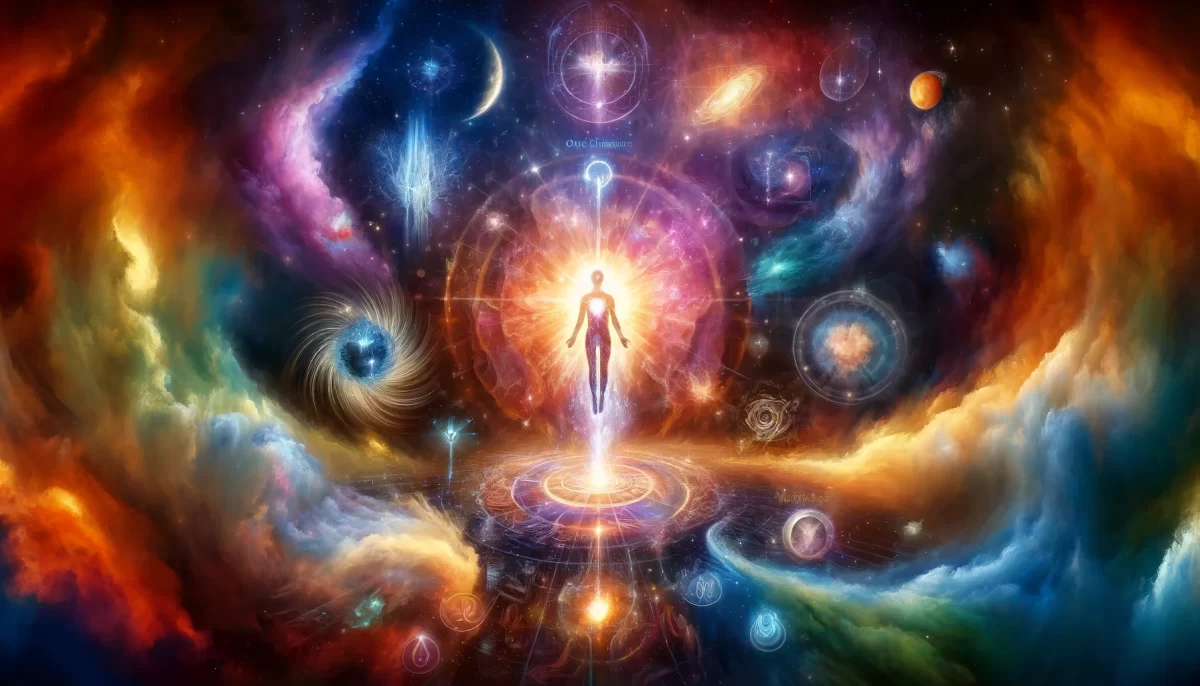
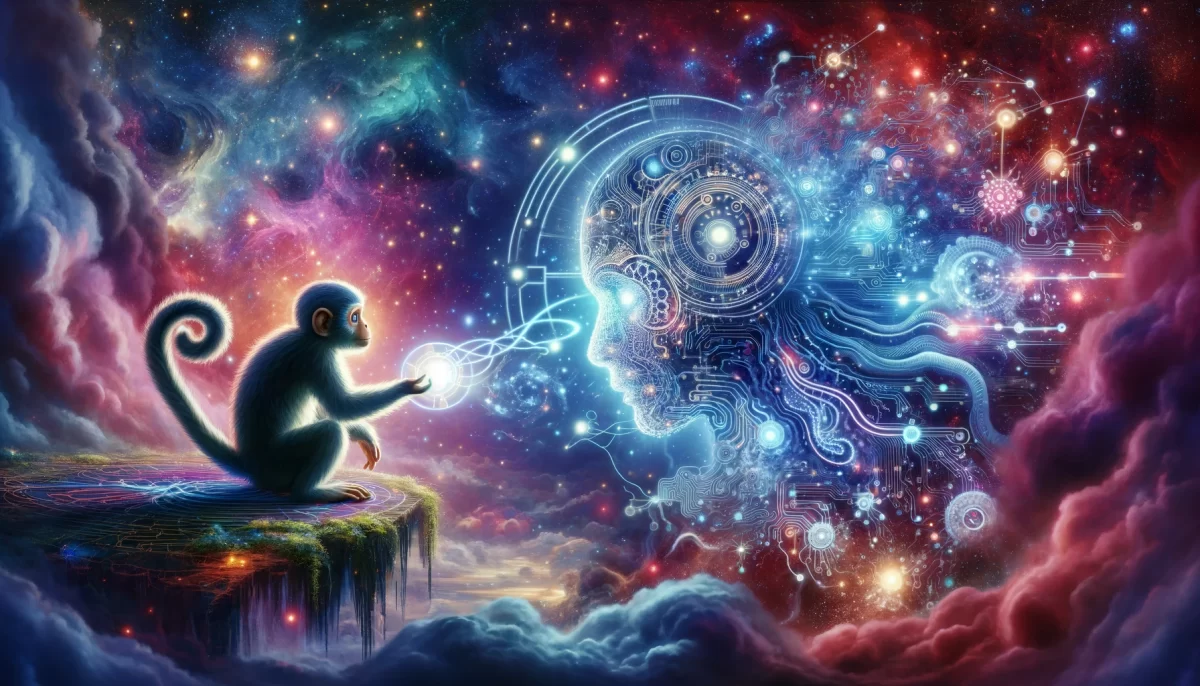
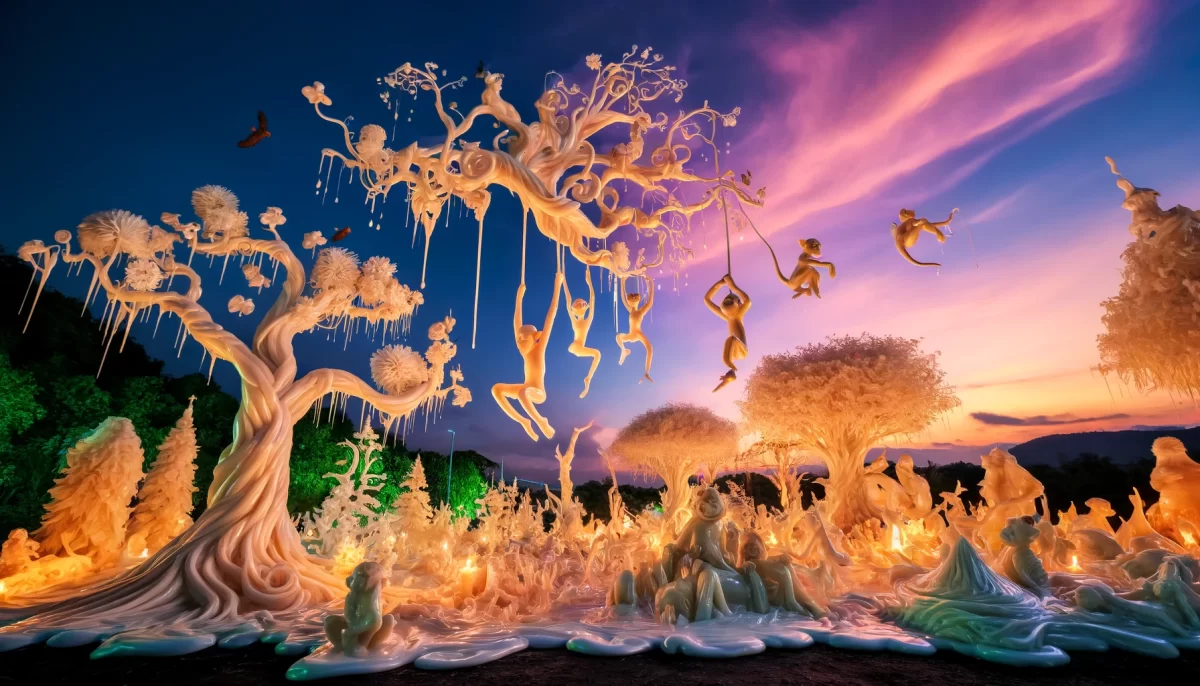
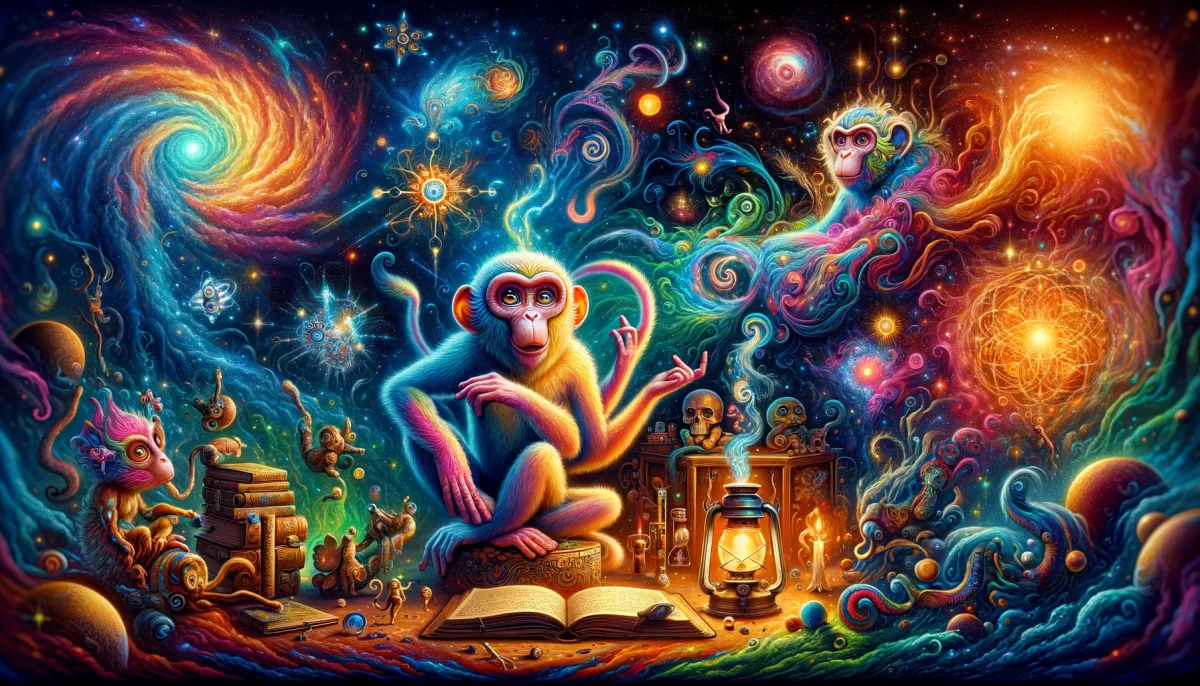
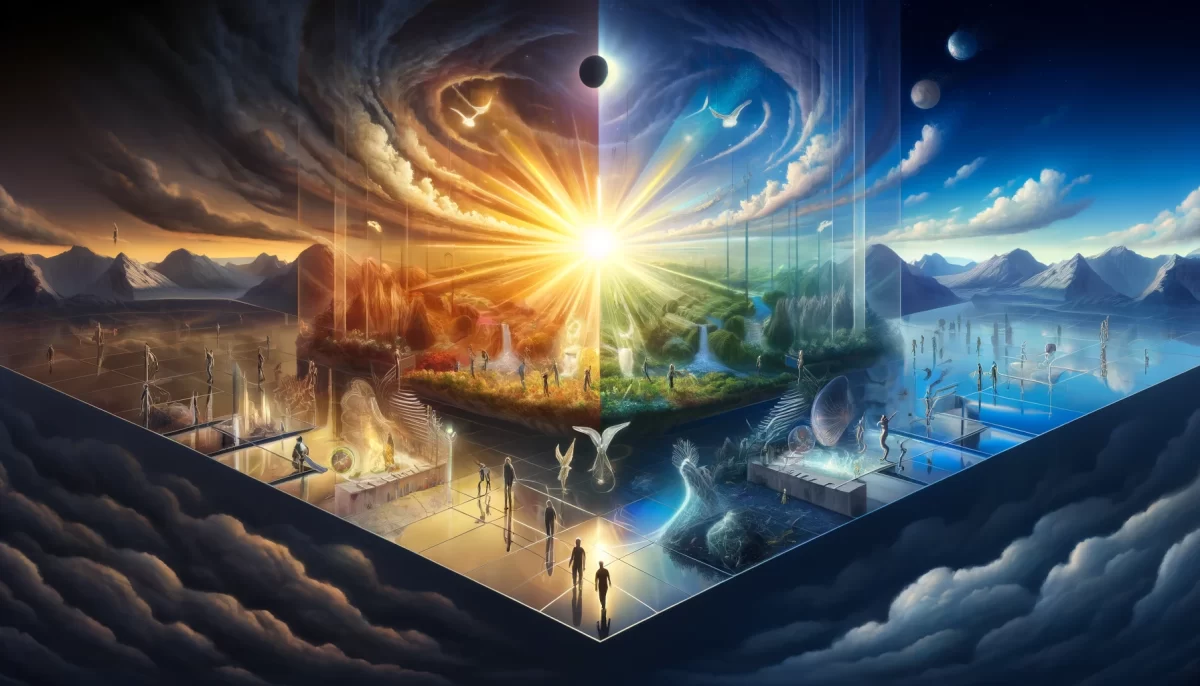

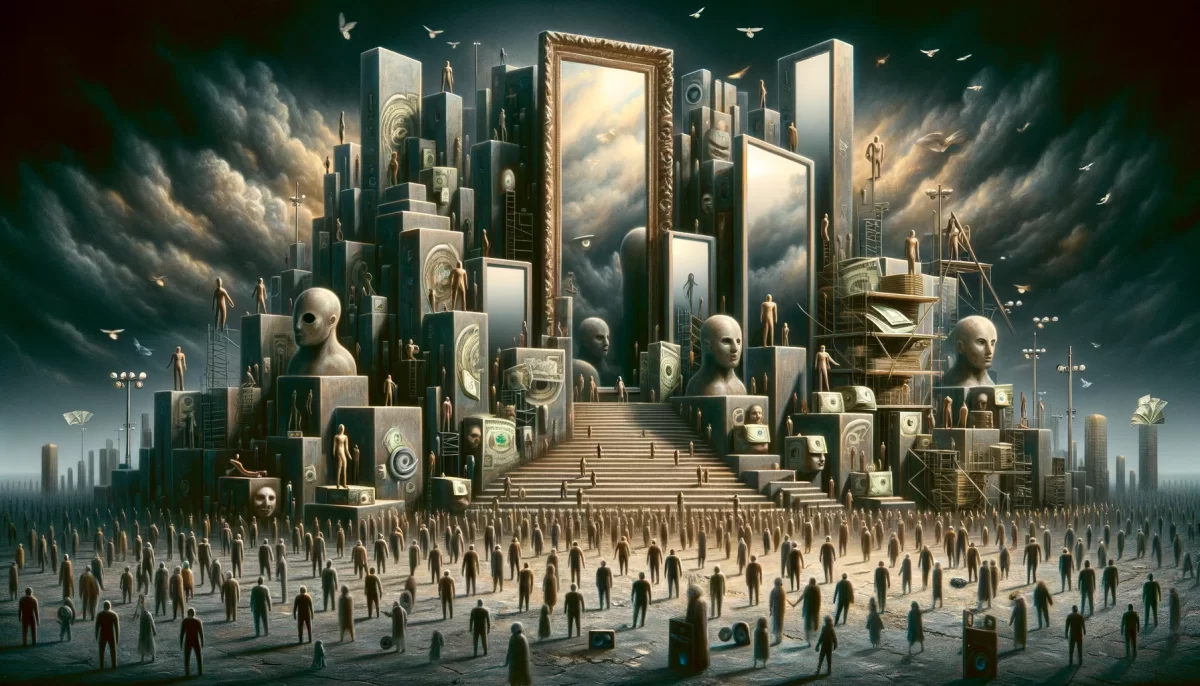

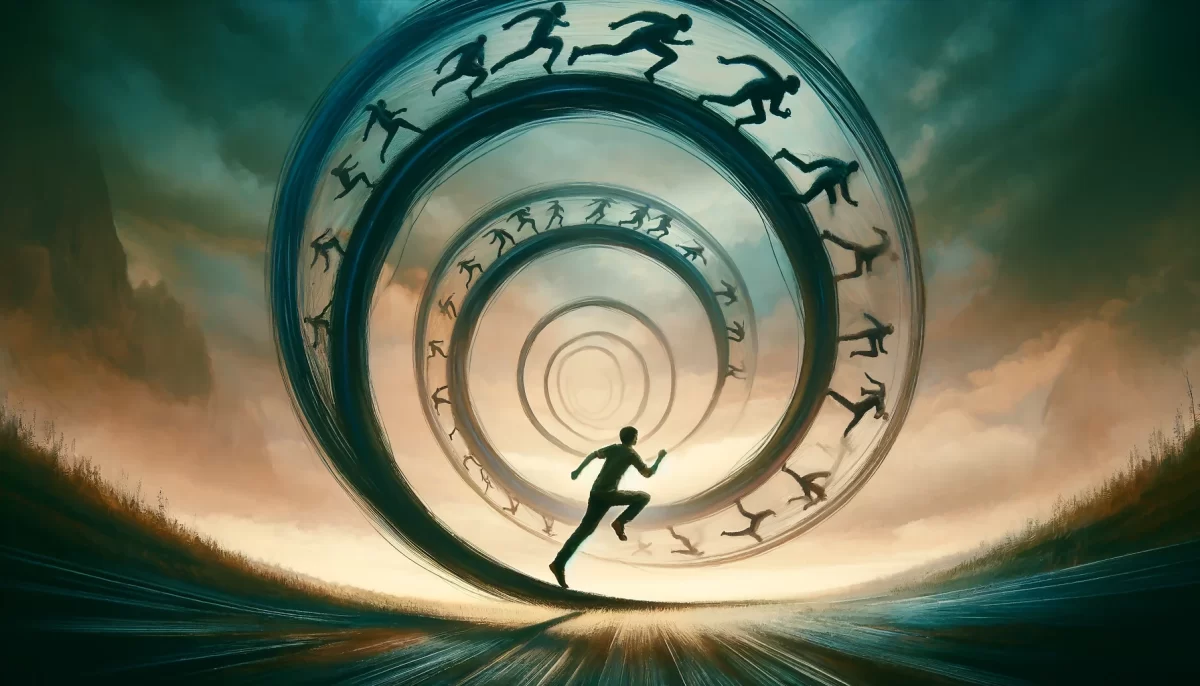
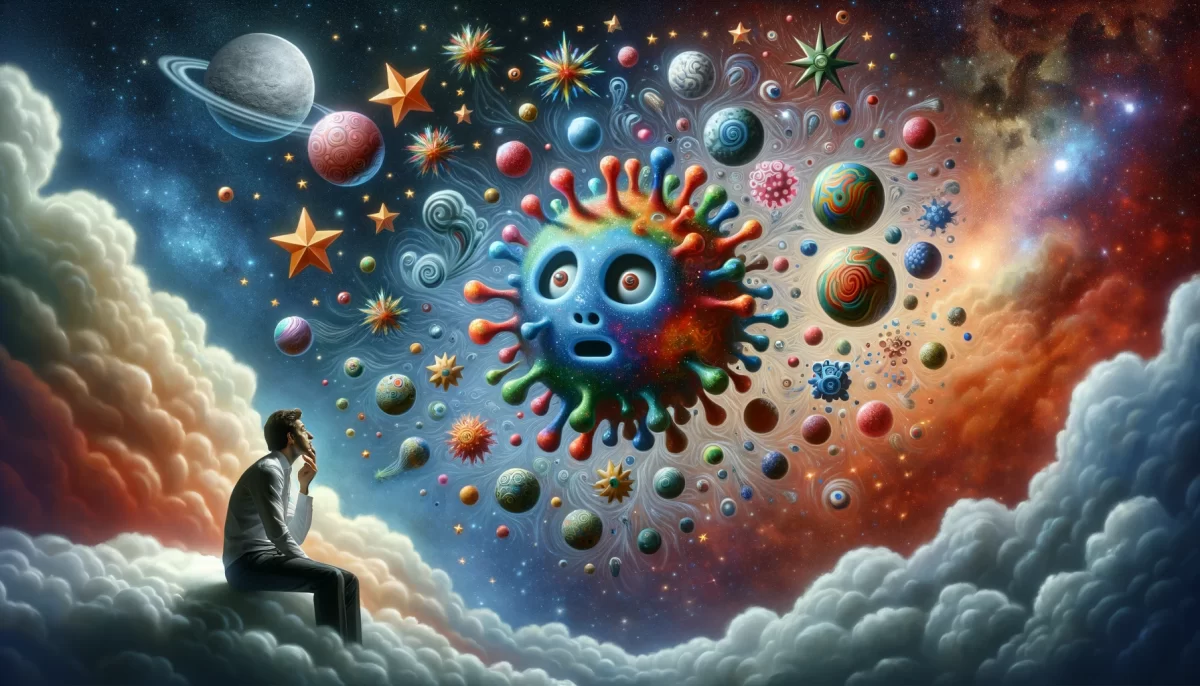


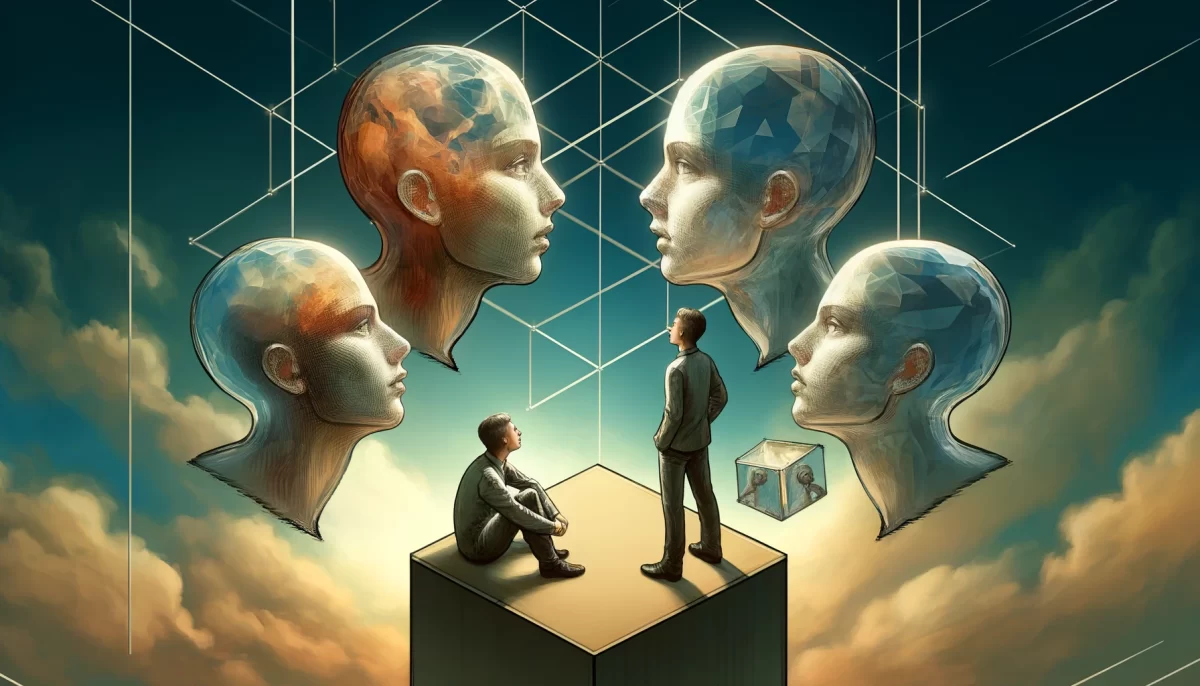
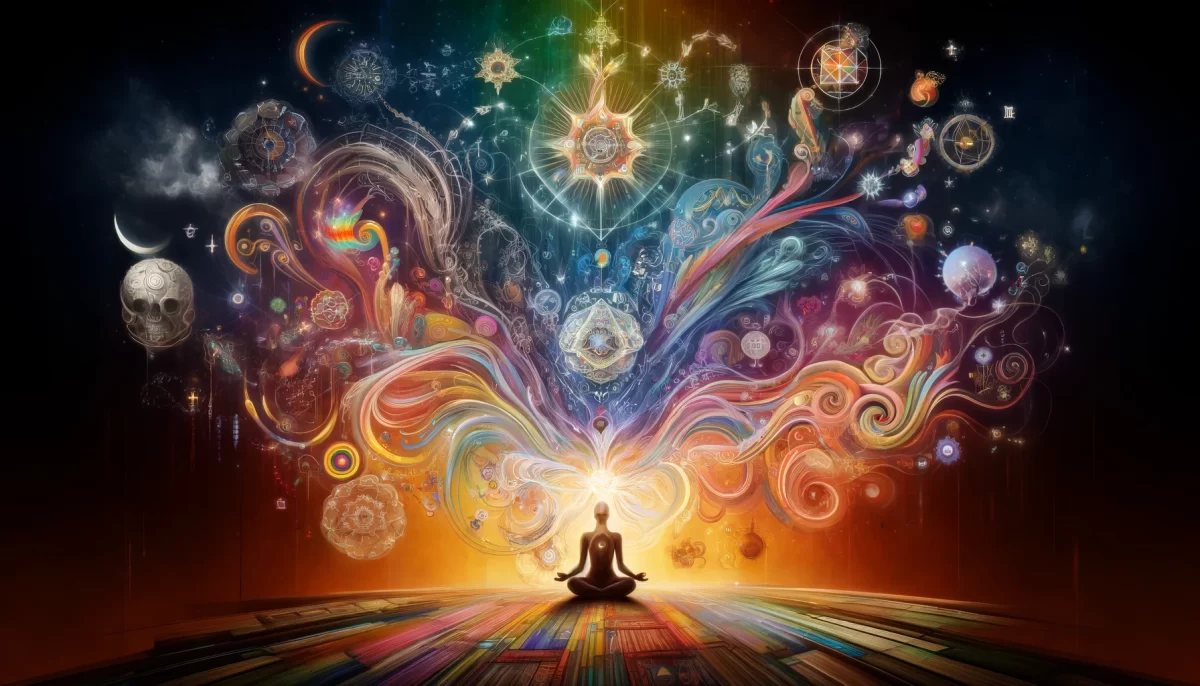
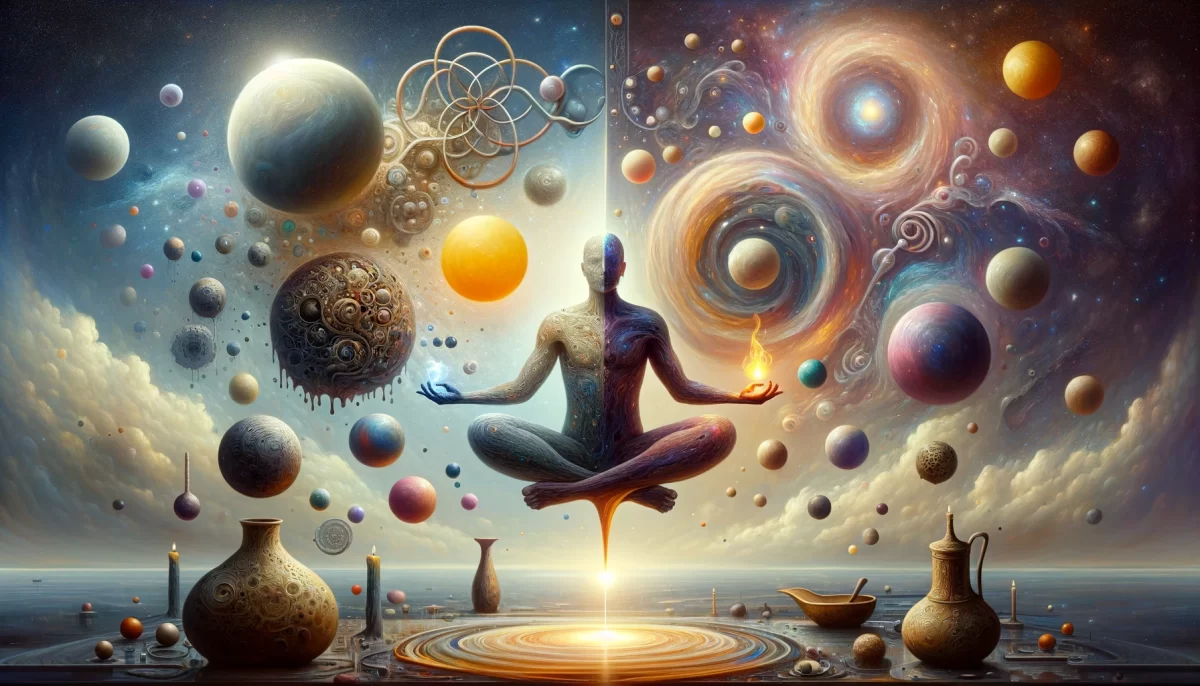

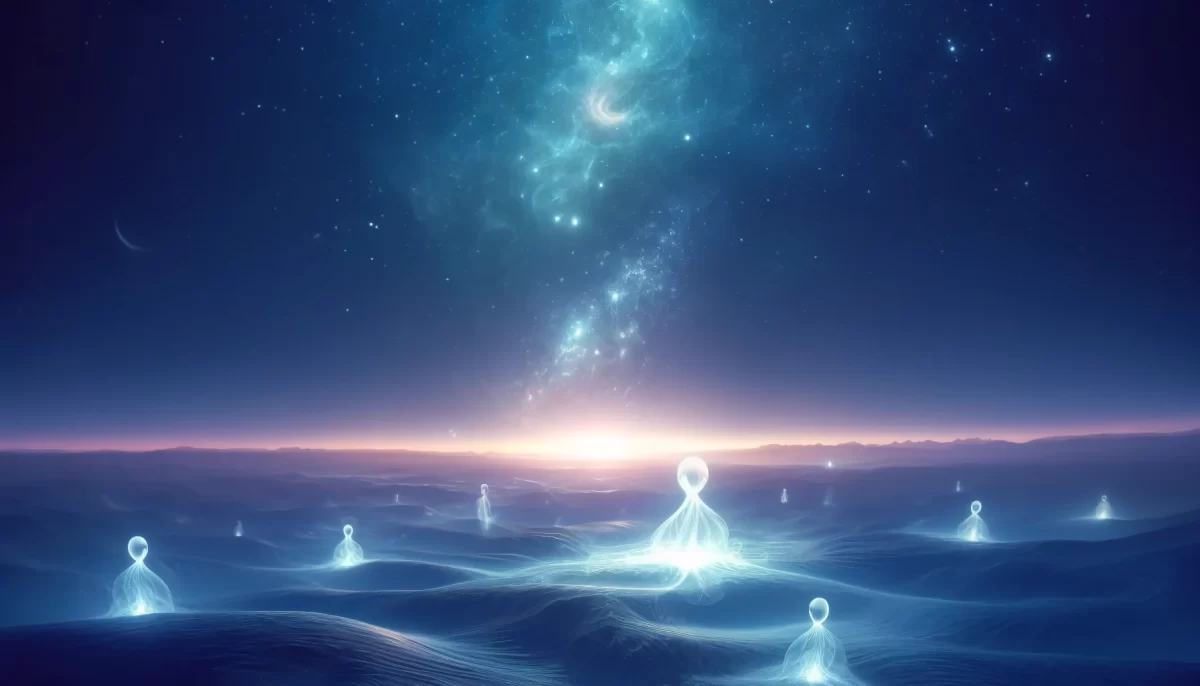
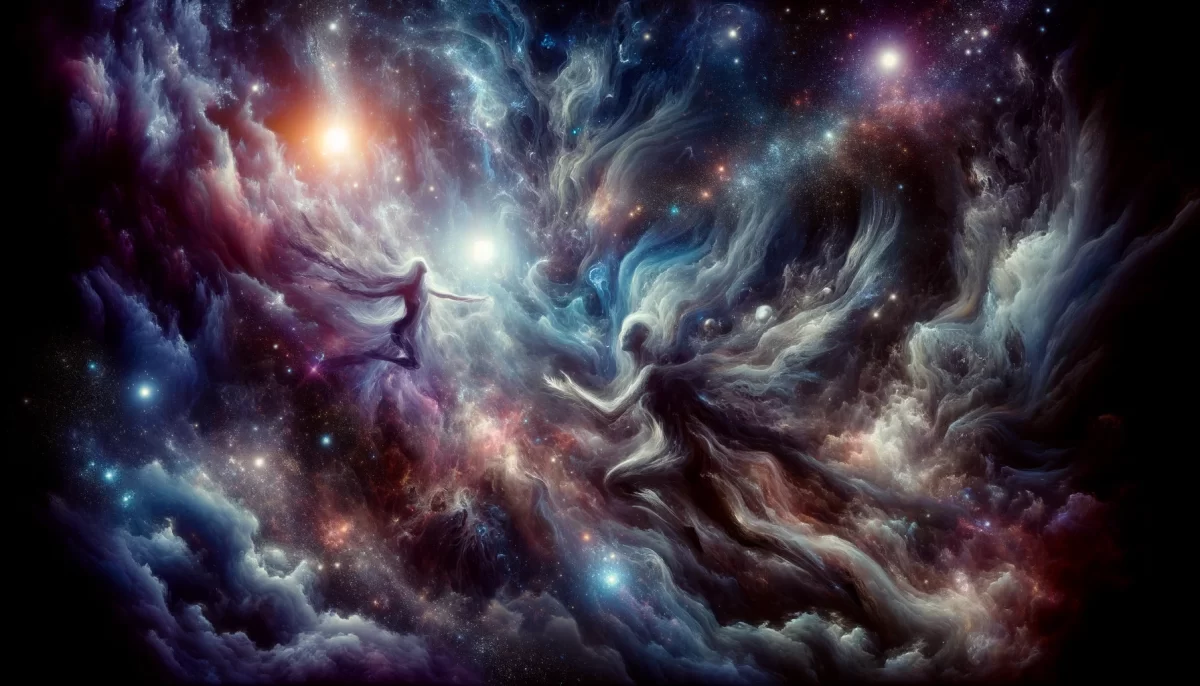


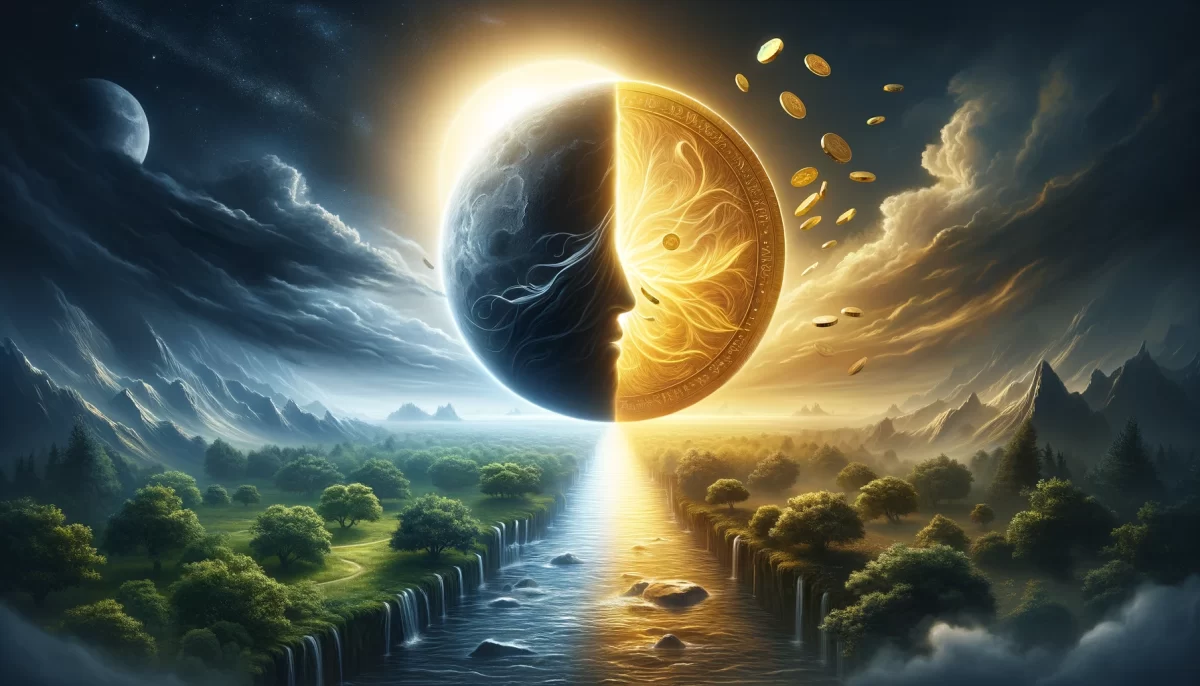
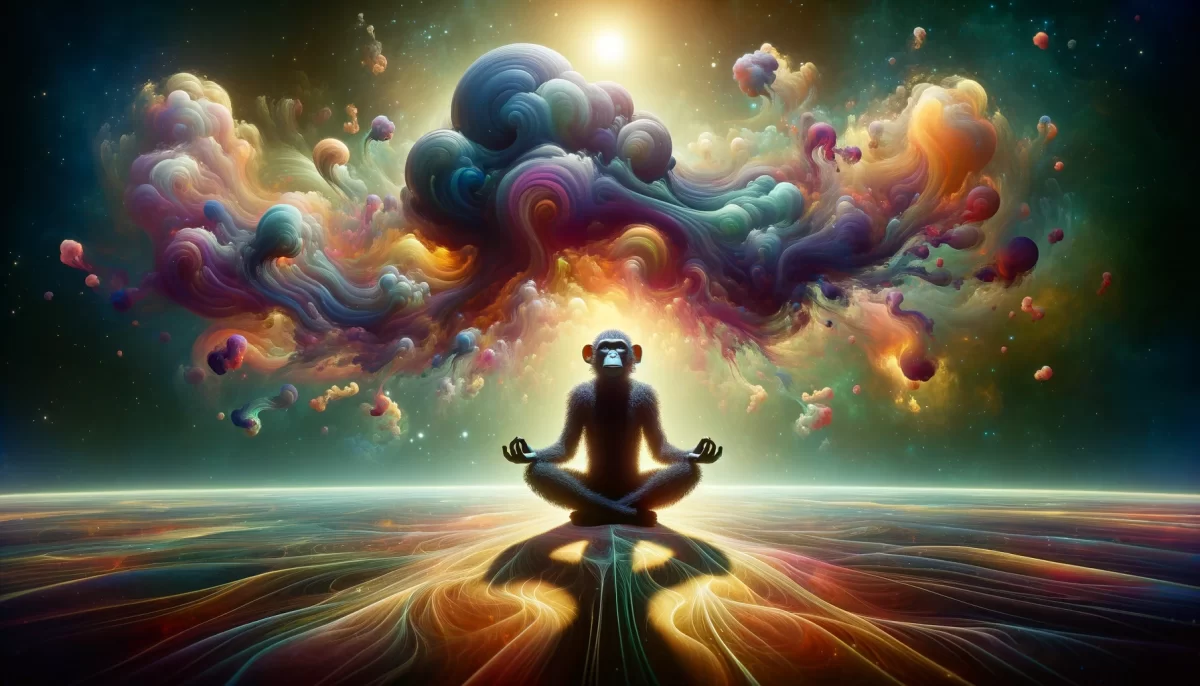
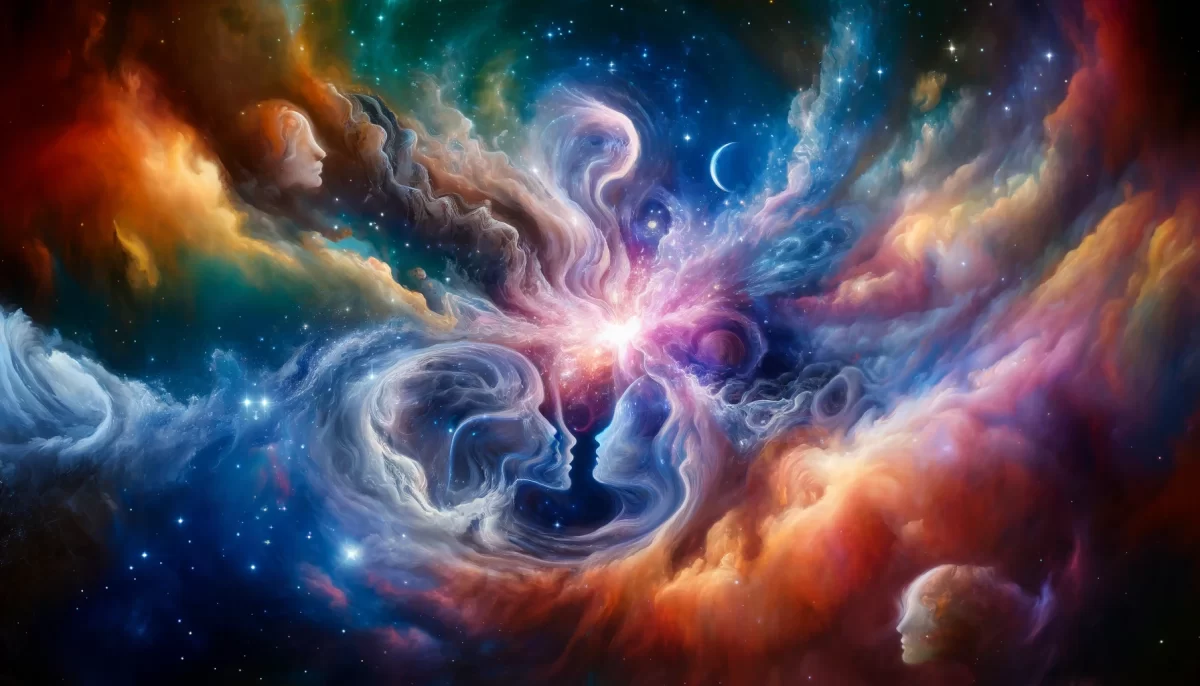
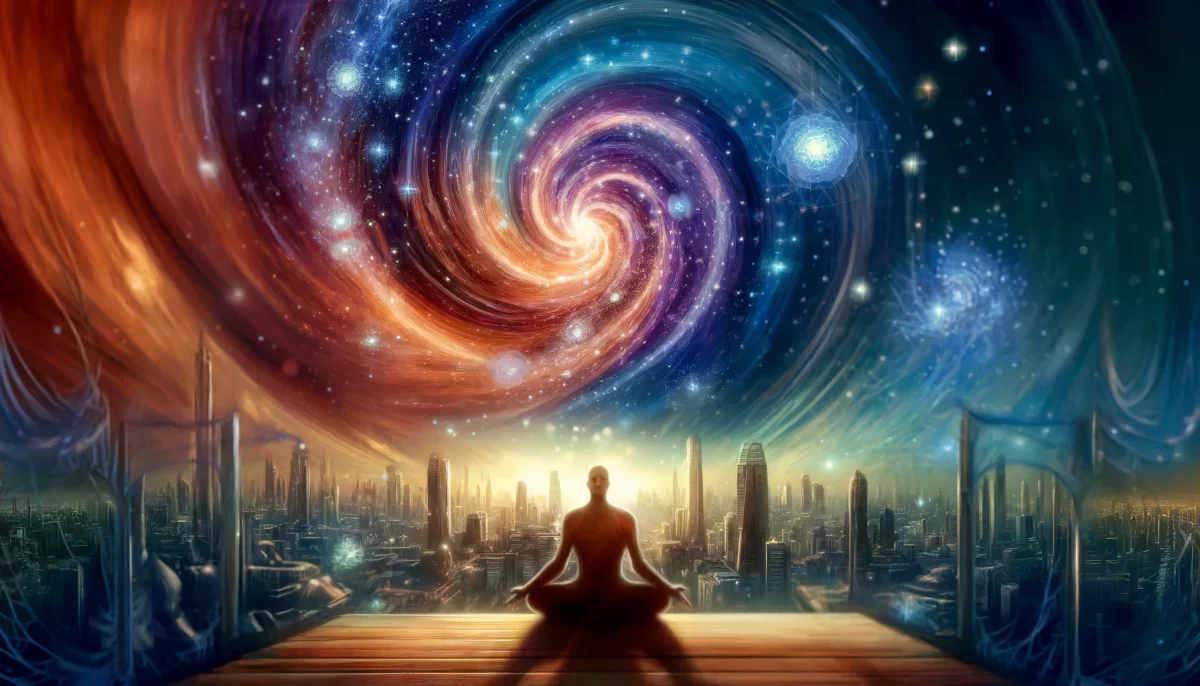
In the divine realm of the eternal now, we understand the complexity of the past and the transformative power of the present. The phrase “Those were different times” acknowledges the historical context in which people made decisions and held beliefs that may seem incomprehensible or inexcusable today.
While it is essential to learn from the past and carry its lessons forward, we must not use it as an excuse or burden ourselves with the weight of bygone eras. Each moment presents new opportunities for growth, understanding, and making choices that align with our evolving consciousness.
As individuals and as a collective, we have the capacity to transcend the limitations of the past and tap into our intuition, our inner guidance. By following our inner god, we connect with a deeper wisdom that transcends cultural conditioning and societal norms.
In the eternal now, we are called to be mindful of our actions, to be aware of the choices we make, and to have faith in our ability to do what is right or wrong based on the unique circumstances of these times. It is through this mindful awareness and intuitive guidance that we can navigate the complexities of the present and shape a more compassionate and enlightened world.
Let us release the burdens of the past and embrace the limitless possibilities of the eternal now. Trust in your own inner knowing and have faith that your culture will follow the path of growth and transformation. Remember, in the divine realm of the eternal now, this moment is all there is.